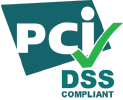
Through the integration of facial recognition, audio analysis, and behavior monitoring technologies, AI promises to make remote online proctoring more efficient. The integration of AI in online proctoring does however raise the question: will this enhance or lessen test administration reliability and security? In this article we will explore the pros and cons of online proctoring with AI.
Is AI widely used in online proctoring?
Online proctoring falls into 3 categories: online proctoring, recorded proctoring, and automated proctoring. AI can be implemented to assist each proctoring type. Currently, live online proctoring accounts for 53% of the remote proctoring market. Recorded proctoring, which can include AI review, accounts for about 25% of the remote proctoring market. Automated proctoring, which requires use of AI, accounts for about 22% of the remote proctoring market.
In total, more than half of all remote proctored sessions use AI in some way.
How is AI used in online proctoring? The 6 AI Online Live Proctoring (OLP) Authority Models
AI can be used in online live proctoring to a varying extent, ranging from fully automated by AI to human proctoring supported by AI. Below are the 6 AI Online Live Proctoring (OLP) authority models:
Unproctored: A test may be administered remotely with an ID check only, but no proctoring at all.
Proctor First: Live online proctoring, where Al can give alerts to a proctor
Al First: Where all proctoring is done by Al and the Al can escalate to a human proctor to make important decisions (e.g. test session termination)
Al Only: Proctoring is fully automated with no human proctor involvement
Record and Review: The whole session is recorded and noted for rule violations by Al. Once the test session is complete, according to the test sponsor’s policies and procedures, the notations and session recording may be reviewed by a human.
Proctor the Proctor: Proctor is monitored by AI for quality control purposes
Pros: What are the potential benefits of using AI in online proctoring?
One potential benefit of using AI in online proctoring is scalability. With the use of AI tools to support human proctors and the use of AI to fully automate proctoring, creates potential session management efficiencies. These may result from faster identification of and response to potential issues as well as from more accurate assessments of online test behavior and environments.
Either way, some experts believe that AI could support an increase in the number of concurrent test sessions facilitated at any one time. AI tools can also enable more test candidate sessions per proctor, which is known as raising the proctor ratio. As an added benefit to the test sponsor, reducing the amount of time spent reviewing test sessions can potentially lower the cost of online proctoring.
Another potential benefit of using AI in online proctoring is increased security. AI may be used in remote proctoring to escalate instances of cheating to a human proctor, review a recorded test session to detect cheating, and more.
When accurate and reliable AI is implemented it can enhance consistency and precision of online proctored sessions as well as streamline the process.
Cons: What are the potential risks of using AI in Online Proctoring?
When implementing AI in remote proctoring, accuracy is key. Before accuracy is achieved, there is more likely to be an increase in the number of detected instances of cheating that prove to be false positives. Take for example AI that detects a test candidate talking to him or herself and escalates this event as a test session rule violation. A human proctor may review the test session and determine that the candidate is reading a test question aloud, for example, or some other common human behavior that does not violate the test rules. It can be more difficult for an untrained AI to detect nuance in human behavior.
There is also the potential risk that test candidates may not accept the validity of a test proctored by AI, especially if their test session was flagged for a potential rule violation. There is also the risk that some test candidates may be biased in favor of the reliability of a human proctored exam. There have also been cases where test candidates objected to the use of AI remote proctoring due to data privacy concerns. Risks like these can have an impact on the credibility and reputation of an exam and the test sponsor. These risks could potentially increase a test sponsor’s exposure to legal liability as well.
As AI is adopted more widely in online proctoring, test sponsors have a responsibility to consider the privacy, security and reliability of the exam sessions.
Learn more about navigating the promise and perils of AI in credentialing – register for our upcoming webinar!

Click here to register and join us as we navigate the potential and perils of Artificial Intelligence (AI) in credentialing, uncovering the transformative possibilities it holds. By proactively addressing misuse, we can shape a future where AI is harnessed responsibly and ethically, driving innovation while upholding the core principles of credentialing. We will cover:
- AI-powered exam development in which cutting-edge algorithms enable the development of highly effective test items while reducing the burden on subject matter experts (SMEs). However, how do we address concerns regarding copyright, protection of intellectual property, bias, and accuracy?
- AI-driven proctoring revolutionizes remote test administration. Through the integration of facial recognition, audio analysis, and behavior monitoring technologies, AI promises to increase test security. Do the benefits outweigh the risks around privacy, data security, bias, and decision accuracy?
- AI in psychometric and content analysis can extract valuable insights from data to continuously improve the testing process. Although AI can enhance data processing and statistical modeling, challenges surface regarding the interpretability of AI-driven algorithms and the potential reliance on black-box systems.
- AI in bolstering security and mitigating cheating in credentialing. From advanced web patrols to identify exposed content to score anomaly detection, AI strengthens the assessment ecosystem, safeguarding the credibility and integrity of credentialing programs.
Don’t miss these insights and stay ahead of AI innovation in credentialing. Register for the webinar here.
Ready to explore how Online Live Proctoring (OLP) can benefit your certification program?
With 20+ years of expertise in online delivery, Kryterion’s comprehensive and secure live remote proctoring service can scale with certification programs of any size.
Features of Kryterion’s approach to online proctored testing include:
- A secure browser to prevent access to unauthorized materials and information during the exam. This technology allows test sponsors to lockdown apps, URLs, and commands.
- Highly trained proctors for monitoring and real time protection against cheating and item harvesting.
- A three-tier support system to enhance security and candidate experience.
Kryterion’s higher standard of online live proctoring (OLP) includes assigning a live, well-trained professional proctor to the testing session. It is our goal to help your organization ensure the credibility and security of your certification program, while delivering an exceptional experience to your test candidates.
Schedule a call with a Kryterion expert to learn more about how Online Live Proctoring (OLP) can help your organization grow and scale your certification program.





